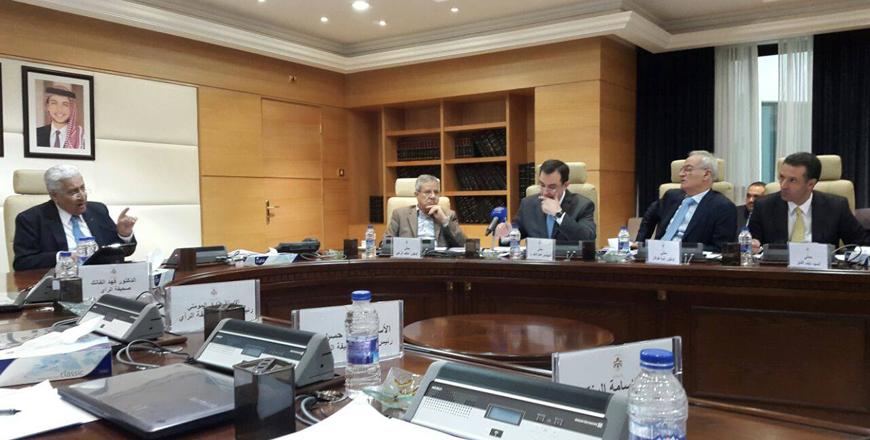AMMAN – Prime Minister Abdullah Ensour on Monday said that Jordan's economy is on the right track due to financial and monetary stability despite the absence of any exceptional economic aid to deal with regional turmoil.
At a meeting with chief editors of daily newspapers and journalists, the premier indicated that foreign reserves at the Central Bank of Jordan reached a record high by the end of 2014 to over $14 billion, while the budget deficit dropped from JD1.3 billion in 2013, or 5.5 per cent of the GDP, to JD585 million, 2.2 per cent of the GDP.
On the Kingdom's indebtedness, Ensour said public debt ratio to the GDP will start to go down as the economy is growing at a faster pace.
Public debt currently stands at JD21.1 billion, he said, adding that the economy grew by 3.1 per cent last year and is projected to expand by 3.8 per cent this year.
Describing the growth rate as lower than the desirable rate, he blamed the Syrian crisis, which resulted in the influx of over 1.4 million Syrians into the Kingdom, for the modest growth levels.
“Jordan’s economy would have expanded by at least 5 per cent last year if there had been no crisis in Syria,” the premier said, adding that the cost of the influx of refugees on the economy in 2014 was around threefold the budget deficit.
Citing official figures released by UN agencies, Ensour said the cost of hosting hundreds of thousands of Syrians on the economy is estimated at $2.8 billion, only 38 per cent of which is covered by donor countries.
The prime minister said that his government has succeeded in reducing the budget deficit, controlling spending and squandering, in addition to endorsing legislation related to the economy such as the investment, income tax and public-private partnership laws. He added that the government also made difficult but necessary decisions such as directing subsidies to segments that deserve government support.
“Was the government up to its responsibilities in managing the financial situation? Yes, and figures speak,” he told his audience, citing figures that showed the government increased domestic revenue targets and reduced spending.
Ensour, who was appointed prime minister in October 2012, said that in the 2011 Budget Law projections for domestic revenues fell short by JD571 million from what was achieved; in 2012, they were lower by JD214 million, in 2013 by JD177 million, while in 2014 revenues achieved were higher by JD200 million than what was set in the Budget Law.
Finance Minister Umayya Toukan told the meeting that the economy is on the right track but indicated that Jordan is in need of further financial aid.
Toukan said the government is managing the debt properly and borrows when there is real need to fill funding gaps.
